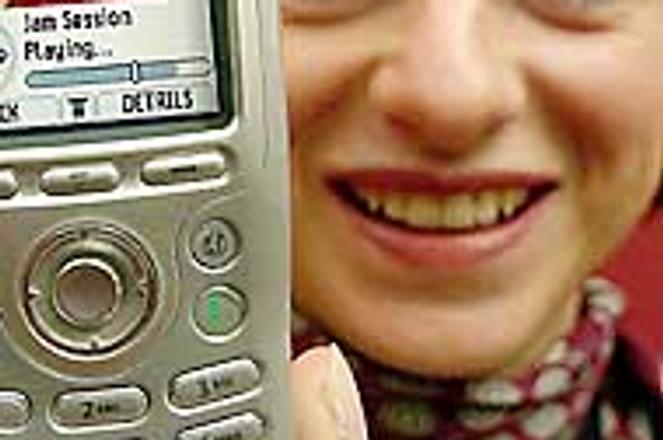COMPETITION for UMTS may be weak.photo: TASR
STATE OFFICIALS are weighing calling yet another contest for a third GSM and UMTS mobile service operator following the failure of July tender winner Profinet to pay the first Sk500 million ($11.5 million) installment of its license fee on time.
The Telecom Office market regulator announced on September 3 that it would strip Profinet of its operator's license after the firm failed to meet an August 30 payment deadline, which had itself been extended from the original August 14 limit.
"Failure to make the first payment is a gross infringement of the license conditions," said Telecom Office spokesman Roman Vavro, adding Profinet had 15 days following receipt of the Office's decision to appeal.
"In evaluating it [the failure to pay] all reasons and circumstances are taken into account, but at the moment it's difficult to determine what reasons Profinet could give for failing to pay for its license," Vavro added.
The firm itself explained little, releasing a brief public statement that "the conditions [of the tender] were changed to our disadvantage, creating time pressure, which is why Profinet was unable to conclude a mutually advantageous contract with a strategic investor within the time set."
Profinet was awarded a GSM and UMTS operator's license by the Telecom Office on July 12, meaning that along with incumbent GSM mobile operators Orange and EuroTel it was to start offering 'third generation' advanced data services from the beginning of 2004.
The total license price was Sk1.5 billion ($33 million), with a second installment due on December 2 this year. Profinet committed to Sk8 billion in investments to get its network up and running.
However, the firm, whose basic capital is Sk50 million ($1.1 million), never revealed the name of its alleged foreign investor, who was to have put up the capital.
Industry analysts say a fourth tender could now make little sense, given the headstart the incumbents already have with bringing UMTS to market, as well as their 2.5 million GSM clients, almost half of the Slovak population.
"I see another tender as problematic, given the client numbers of the incumbent operators and Slovak Telecom [fixed line monopoly]," said Vladimír Ondrovič, head of the Association of Telecom Providers.
Three tenders for a third Slovak mobile operator have now failed. In the first tender in 1998 the bidders were rejected by the state, while in 1999 the bidders themselves said the conditions set were unfair. GSM 1800 licenses that year were instead given to Orange (then Globtel) and EuroTel, in an untransparent transaction that resulted in the resignation of Telecom Minister Gabriel Palacka.
Ondrovič said that valuable time had now been all but lost. "Four years ago there was great interest [in another mobile license], but the incumbents since then have been successful in building and protecting their market position."
The European Union has advised Slovakia to attract a third operator to increase diversity among telecom suppliers. Failure to do so, Ondrovič added, "would be bad for this market, it would be dangerous. Two firms can come to agreement, but with three there is always a stronger element of competition."



